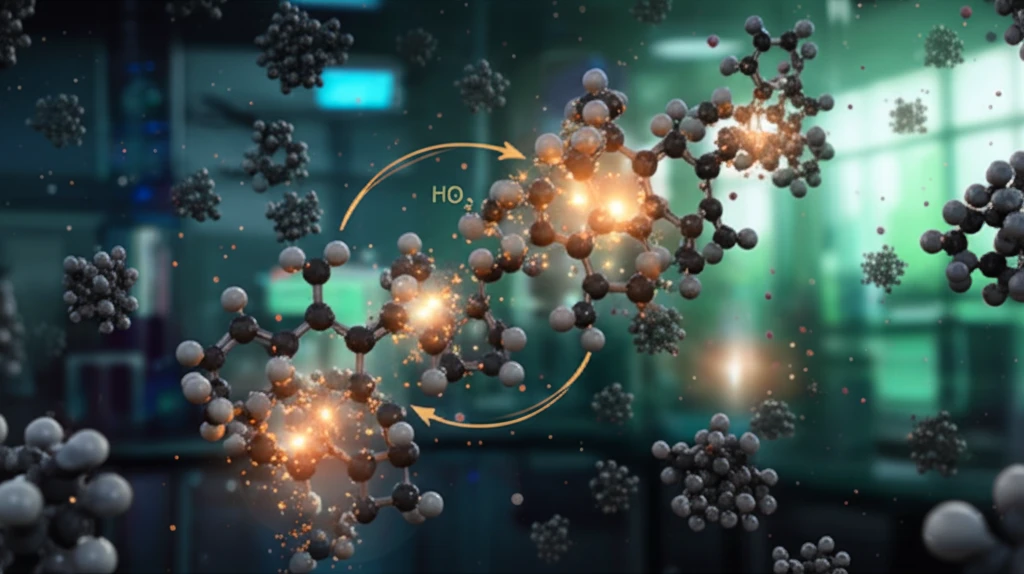
Tiny Particles, Big Impact: How Nanotechnology is Revolutionizing Chemical Synthesis
"Unlock the secret to efficient chemical reactions with nanoparticle catalysts. Explore how scientists are using nanotechnology to create faster, greener, and more effective chemical processes."
For decades, chemists have sought to refine synthetic processes, aiming for reactions that are not only efficient but also environmentally sound. The synthesis of complex molecules often requires harsh conditions, expensive catalysts, and generates significant waste. This has spurred a search for innovative methods that can overcome these limitations.
In recent years, nanotechnology has emerged as a promising frontier in this quest. Nanoparticles, with their exceptionally high surface area to volume ratio, offer unique catalytic properties. These tiny particles can dramatically accelerate chemical reactions, reduce the need for extreme conditions, and minimize waste production. Among the various nanoparticles explored, gamma-alumina (γ-Al2O3) has garnered considerable attention due to its stability, biocompatibility, and catalytic potential.
A recent study published in Molecules (2015, 20, 19221-19235) delves into the remarkable capabilities of γ-Al2O3 nanoparticles as catalysts in the synthesis of highly substituted imidazoles. Imidazoles, a class of heterocyclic compounds, are crucial building blocks in pharmaceuticals, agrochemicals, and various other industries. This article explores how these nanoparticles facilitate the efficient and environmentally friendly production of complex imidazole structures.
What Makes Gamma-Alumina Nanoparticles Special for Chemical Reactions?

Gamma-alumina nanoparticles possess several key characteristics that make them excellent catalysts. Their high surface area provides abundant active sites for reactant molecules to bind and react. Additionally, γ-Al2O3 is known for its Lewis acid properties, meaning it can accept electron pairs and facilitate reactions that involve electron transfer. These properties combined enable γ-Al2O3 nanoparticles to catalyze reactions efficiently, often under milder conditions than traditional catalysts.
- Reduced Reaction Time: The use of γ-Al2O3 nanoparticles significantly shortened the reaction time compared to conventional methods.
- Improved Yield: The reaction yielded good to excellent amounts of the desired imidazole products.
- Milder Conditions: The reaction proceeded efficiently under sonication (sound waves) and conventional heating methods.
- Reusability: The catalyst could be recovered and reused multiple times without significant loss of activity.
The Future of Nanoparticle Catalysis in Sustainable Chemistry
The study highlights the potential of γ-Al2O3 nanoparticles as efficient and reusable catalysts for synthesizing complex molecules. By enabling faster reactions, reducing waste, and operating under milder conditions, this technology contributes to the growing field of green chemistry. As nanotechnology continues to advance, we can expect to see even more innovative applications of nanoparticles in chemical synthesis, paving the way for more sustainable and environmentally friendly chemical processes.
